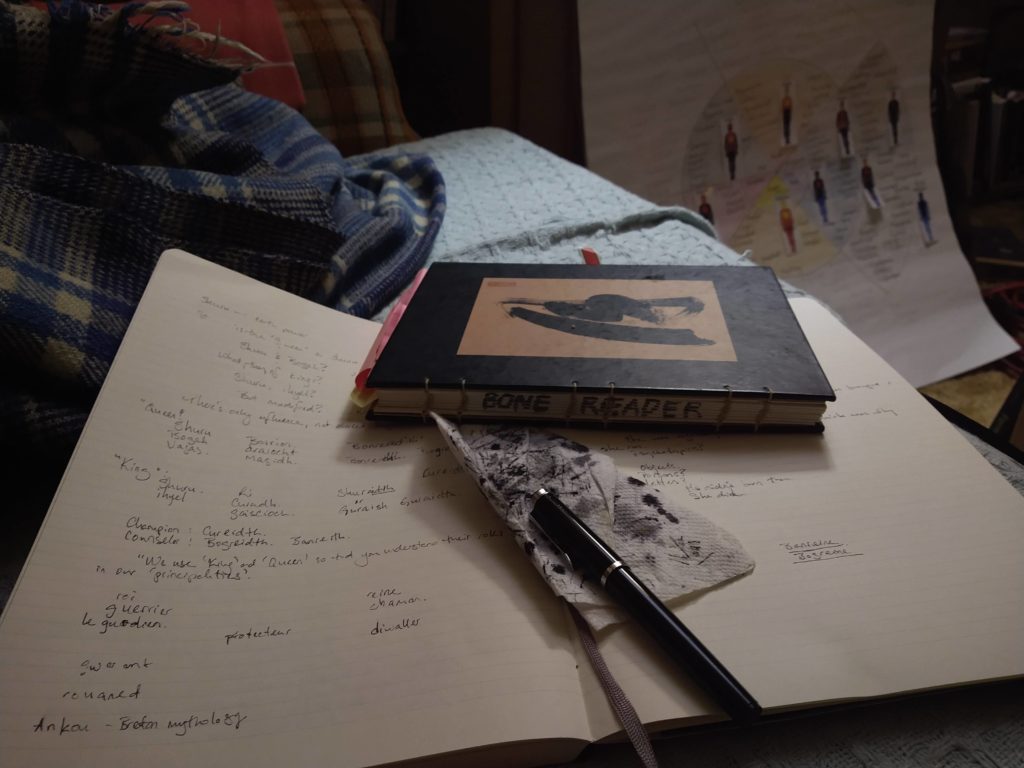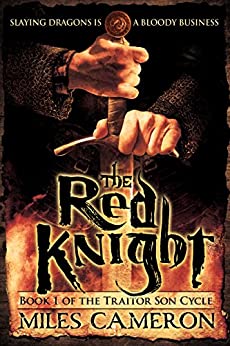That’s as good a title as any I could have chosen, except that the world isn’t that new to me. I wrote the original versions of The Bone Reader in the mid 1990s. It shifted and developed along the way till I finally revised and published it in 2018. It’s actually older than my firstborn.

I could have titled this post as “A bit like excavating,” but it’s not quite that. It’s perhaps far more anthropological. Quite honestly the writing process for Ihyel is far more like I’m a tourist, bringing in my assumptions and discovering I’ve got it wrong as I explore a new country.
I couldn’t but bring in ideas of Europe to the original book. Most of the fantasy fiction I’d read at that point seemed rooted in that mythology, culture, and landscape. Most history and geography classes also focused on Europe throughout my schooling. Being a child of immigrants, having lived in other countries when my father was on sabbatical, I did have experience that opened my eyes to the blinders in that limited education.
I had only one professor throughout my upbringing to adulthood who took an unexpected—and quite welcome—approach to his World History class. He hammered home his disgust of more conventional approaches by having us read A History of Africa. He was absolutely correct in assuming his students had never really learned or explored beyond the history of Europe. Even myself, whose parents were from South Africa!
Besides my art books, and the literature ones, it is one of my treasured books on my shelves. (The book is at my own home; I’m still living in my mother’s home to care for her. I will update with the bibliographic information when I can; till then try the PBS series Africa’s Great Civilizations hosted by Henry Louis Gates, Jr. This series inspired a culture I still haven’t written about—partly because of needing to explore more of the art, history, and culture, but also wanting to be respectful of the cultures that inspired it).
The Bone Reader was born out of the facile trope of a typical feudal framework. As I wrote, and as I revised, the more I began to understand Pyran, and some of its mythology. Being only the second book I’d ever written, I’d already become enchanted by exploring far beyond Europe’s borders for mythology, history, and culture. I’ve been wrestling between my cultural heritage and my growing passion for world—a larger world—history ever since.
When I say it’s facile to write a fantasy book based on European tropes it’s not that fantasy books within that framework are easy to write. If one looks at, for instance, Mile’s Cameron’s The Red Knight, you’ll know it takes brilliancy and research to do that level of work. He has gritty realism in a fantastical context I’ll admit I could not do. What I did, and I think it shows, was impose a fairly unexplored and unresearched schoolbook version of a European historical culture upon my original novel. If it doesn’t show, then it’s because I worked really hard to step it away from my original assumptions of that world.
Writing books two and three in a series that practically landed itself on my head, I’m realizing that there is far more discovery to do. And not the touristy discovery that flits one from spot to spot. It’s more like live there, or hike there, and meet people, stumble over the language, and realize that my assumptions have been wrong all along.
I’m discovering what I don’t know, even as I discover more of Pyran than I had expected I ever would. Having had the bones of the second book in the wings since the 1990s, and it taking some inspiration from that, I was surprised I didn’t travel across the strait to Hergila, but went north, almost up into Pruan. In the third book Pruan’s culture has suddenly become highly important. And to my dismay, what I don’t know about that culture informs me about the huge gaps of my knowledge of my second ever culture of Ihyel. By the time I published The Bone Reader was among nine more complete drafts, several of which were based in Ihyel.
What don’t I know? Well, the trade and treaties Pyran would have with its other neighbors to the north and east. The music they might play. Just because there’s a decided influence of our world’s Al-Andalus for southern Pyran, doesn’t mean the extreme North would be using the same instruments, or eat the same foods. The landscape is different, so their agriculture would be different, and thus their food would be different. The further inland you’d go, there might still be foreign imports hitting the dining tables of the wealthy, but which ones would be worth the expense?
Worse yet? The glaring holes in the mythos of the four humors. This comes as a new primary character in the third book seems to have braids in her hair inspired by the bogeh of the Tashihyel to the east noted in The Red Khémèresh, but also have similar symbols to the clerical symbols Cemirowl, the bone reader herself, priestess, would wear on her vestments.
Facile, I say? [Helpless, wry laughter]. It’s not necessarily wrong. My problem is that I continue to impose my ideas and reluctance to the story. Like a galumphing tourist in a foreign country, expecting the foreigners to speak my language and make me a burger instead of the local foods; it feels as if I’ve made some horrid mistake in the original book.
I have to sit back and pause, and allow myself to let the locals tell me more. Try on the clothes (mentally), test out the foods (hopefully in my mother’s kitchen; or any kind of restaurant that might be similar), explore the mythologies and folklore as if I were asking impertinent questions, or reading Joseph Campbell’s Masks of God. (The only way I’ll have anything similar is if I write it—which I rather am, as I write these books novel by novel building this dynamic planet).
I’ve not written myself into a hole. I will if I continue being, well, a tourist in a China Shop. I need to remember what I loved about Pyran and Ilturir, Larthor’s seaside castle, and what Cemirowl found important about her sense of faith. I almost miss her red stained hands. She served as my guide to discover Pyran, and the nobility. I can only step back and stop imposing what I think her culture is, and let her guide me. Let her continue to guide me as I rediscover, and discover a new culture within this world.
What did you love about Pyran? What did you like about the culture? Are there any aspects you’d like to know more of? I can share it in a blog, or incorporate it into the two new books I’m working on now. One draft is finished, the other a quarter way through.
